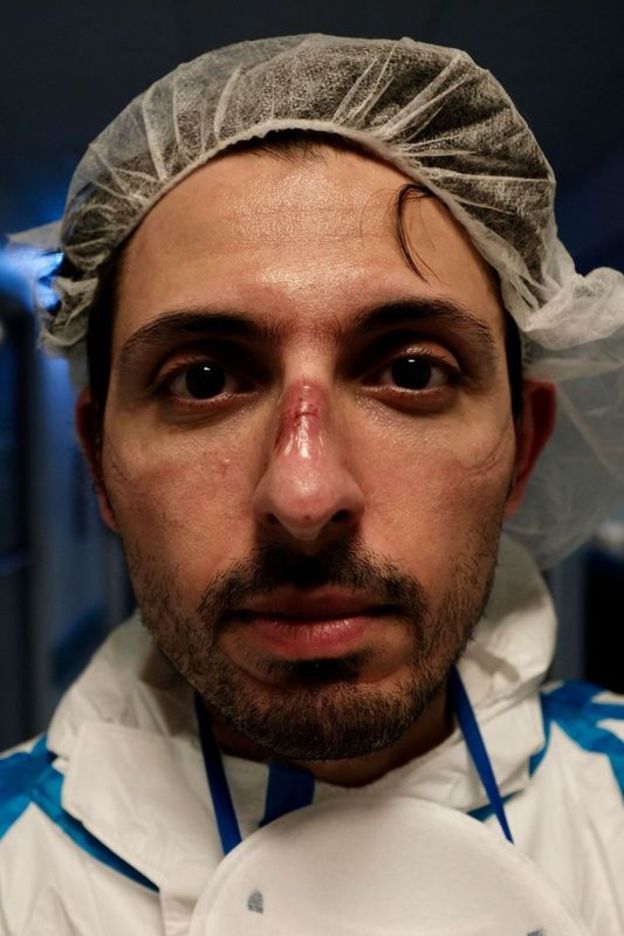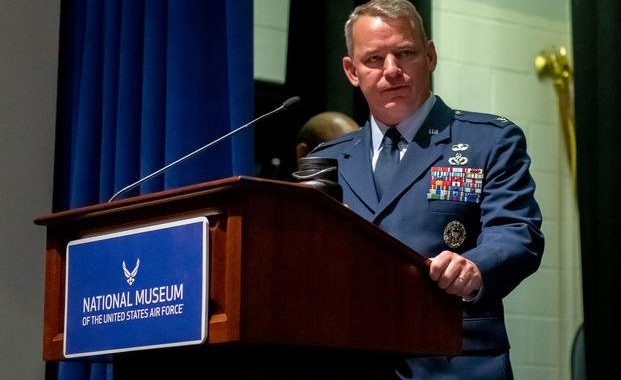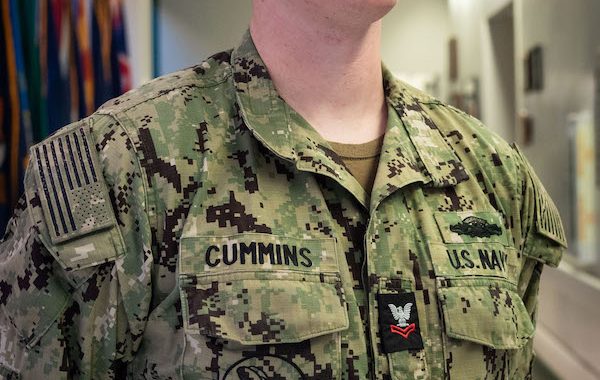Italy’s Medical Workers: ‘We Became Heroes but They’ve Already Forgotten Us’
4 min read
Doctors and nurses in Italy have been celebrated as heroes for treating desperately ill coronavirus patients.
But now, they are suffering.
Lombardy was the hardest-hit region in the world and medics are struggling to hold it together.
Paolo Miranda is an intensive care nurse in Cremona. “I’m more irritable,” he says. “I get angry easily and I pick fights.”
A few weeks ago, Paolo decided to document the bleak situation inside the intensive care unit by taking photographs. “I never want to forget what happened to us. It will soon become history,” he tells me.
In his photos, he wants to show how his colleagues are coping with ‘Phase 2’ as life goes back to normal in Italy.
“Although the emergency is slowing down, we feel surrounded by darkness,” he says. “It’s like we are full of wounds. We carry everything we’ve seen inside us.”
Nightmares and night sweats
It’s a feeling echoed by Monica Mariotti, also an intensive care nurse. “Things are much harder now than during the crisis,” she says.
“We had an enemy to fight. Now that I have time to reflect, I feel so lost, aimless.”
During the crisis, they were overwhelmed and had no time to think. But as the strain of the pandemic fades, so does the adrenaline.
All the stress accumulated in the past few weeks is coming to the surface.
“I have insomnia and nightmares,” Monica says. “I wake up 10 times each night with my heart racing and out of breath.”
Her colleague Elisa Pizzera says she felt strong during the emergency but is now exhausted.
She does not have the energy to cook or take care of the house, and when she has a day off she spends most of her time sitting on the couch.
No ‘new normal’
Martina Benedetti is an intensive care nurse in Tuscany and still refuses to see family and friends as she fears she could infect them.
“I even social distance from my husband,” she says. “We sleep in separate rooms.”
Even the simple things have become overwhelming. “Every time I try to go for a walk, I feel anxious and I have to go back home immediately,” Martina admits.
Now that she’s finally got time to reflect, she is full of self-doubt.
“I’m not sure I want to be a nurse anymore,” she tells me. “I’ve seen more people die in the past two months than in the whole six years.”
Some 70% of health workers dealing with Covid-19 in Italy’s hardest-hit areas are suffering from burnout, a recent study shows. “This is actually the hardest moment for doctors and nurses,” says Serena Barello, the author of the study.
When we deal with a crisis, our body produces hormones that help us handle stress.
“But when you finally have time to reflect on what happened, and society is moving on, it can all come crushing down and you feel more exhausted and emotionally distressed,” says Dr Barello.
She worries that a lot of doctors and nurses will have post-traumatic stress disorder (PTSD) symptoms long after the pandemic. This is when the impact of a traumatic experience affects a person’s life, sometimes months or even years later.
For health workers, this could impede their ability to keep working with the intensity and focus their jobs require.
Forgotten heroes
Around the world, frontline doctors and nurses are being hailed as heroes for risking their lives to treat patients. But in Italy, this love is ebbing away.
“When they were scared of dying, suddenly we all became heroes but they’ve already forgotten us,” says Monica.
“We will go back to being seen as people who wipe asses, lazy and useless.”
In Turin, nurses recently chained themselves together and wore bin bags, a reference to how they had to improvise in wards because of a lack of PPE.
They staged a protest to demand recognition for their work.
“In March we were heroes, now we’ve already been forgotten,” one nurse shouted through a megaphone.
They were promised a bonus for their work but have not yet seen it.
No escape
At least 163 doctors and 40 nurses died from Covid-19 in Italy. Four of them took their own lives.
And yet, many health workers now feel that it’s almost as if this pandemic never happened. “I feel overwhelmed with anger,” says Elisa Nanino, a doctor who dealt with Covid-19 in care homes.
Since the lockdown has been lifted, she constantly sees people drinking and eating together with no face masks and no social distancing.
“I want to go up to them and scream in their face, tell them they’re putting everyone in danger,” she says. “It’s so disrespectful to me and all my colleagues.”
One thing all the health workers agreed on is that public support helped them get through the crisis.
“I’m no hero but it made me feel important,” Paolo says.
Public recognition is the most powerful way we have to help health workers struggling with PTSD, according to Dr Barello’s study.
“All of us, we have a crucial role to play right now,” she says. “We have to make sure we don’t forget what doctors and nurses did for us.”
Soldiers can leave the battlefield and deal with their trauma back home. But for these doctors and nurses, the next 12-hour shift is always around the corner.
They have to cope with all of this in the very place where they suffered so much.
“I feel like a soldier that has just returned from war,” says Paolo. “Obviously I didn’t see weapons or dead bodies in the street but in many ways, I feel like I was in the trenches.”
By Sofia Bettiza





